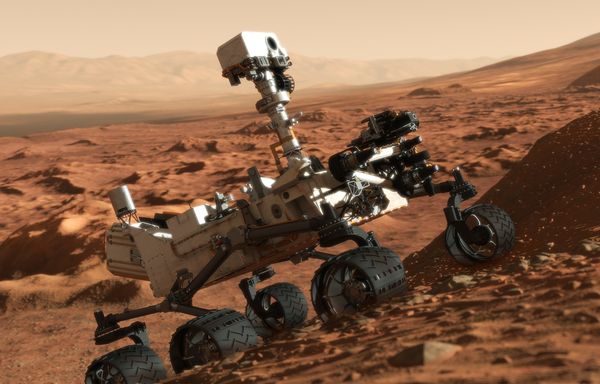
#PewPew on Repeat: I made this hole on Mars with 100 laser shots over 20 minutes [GIF] http://t.co/PP9V0MOzy5
— Curiosity Rover (@MarsCuriosity) June 17, 2013
Perhaps not a very big hole, but a hole nevertheless.
[aditude-amp id="flyingcarpet" targeting='{"env":"staging","page_type":"article","post_id":759968,"post_type":"story","post_chan":"none","tags":null,"ai":false,"category":"none","all_categories":"business,mobile,offbeat,","session":"C"}']Over the course of 20 minutes, Curiosity fired its million-watt laser at a tiny section of Martian soil 100 times. A million watts might sound like a lot of power, but Curiosity’s laser only operates for five one-billionths of a second. Still, that was enough to transform a small part of the Martian surface through all four states of matter almost instantaneously: from solid to liquid to gas to plasma within milliseconds.
AI Weekly
The must-read newsletter for AI and Big Data industry written by Khari Johnson, Kyle Wiggers, and Seth Colaner.
Included with VentureBeat Insider and VentureBeat VIP memberships.
The plasma then explodes (NASA calls it “rapid expansion”) and creates a minicrater as you can see in the animated GIF above. NASA didn’t specify but was likely checking the vaporized matter for its molecular and atomic makeup in an attempt to learn more about the present and past surface of Mars.
I refuse to believe NASA scientists were just “having fun” shooting a laser from a robot on Mars.
The crater is tiny — perhaps a millimeter in size — so there is no danger of indigenous Martians interpreting the laser blasts as a sign of incipient Earthling attack.
Image credits: NASA
VentureBeat's mission is to be a digital town square for technical decision-makers to gain knowledge about transformative enterprise technology and transact. Learn More